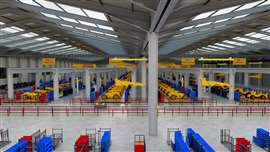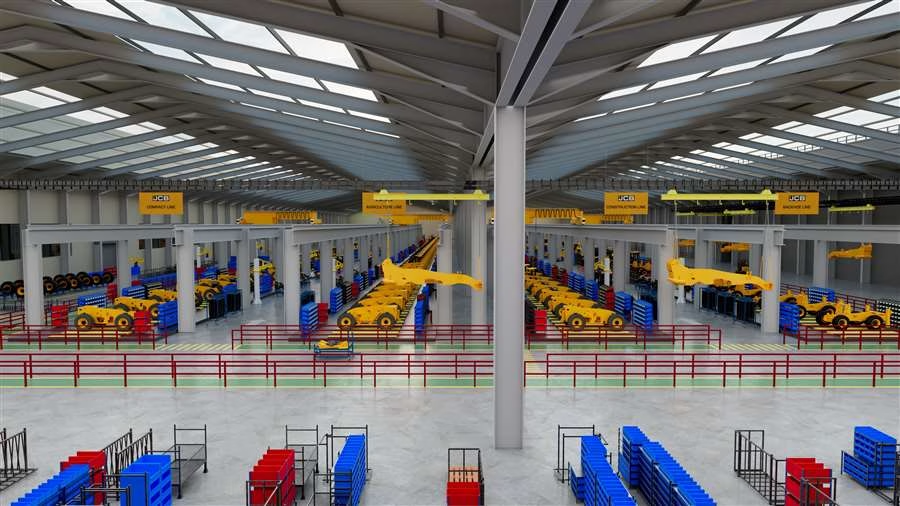JCB has announced a £100 million investment in its UK manufacturing hub at Rocester, Staffordshire. The expansion centres on a fully automated powder-paint plant costing around £60 million. The move is intended to modernise JCB’s global headquarters and safeguard more than 8,000 UK jobs. It reflects the firm’s “backing Britain” stance as it upgrades decades-old facilities ahead of growing competition.
Modernisation Strategy and Operational Upgrades
JCB’s investment focuses on a fully automated powder-paint plant that will replace older manual operations. This upgrade is part of a wider overhaul of the Rocester site, one of the company’s oldest manufacturing facilities. The aim is to simplify workflow, improve throughput, and reduce production costs. The factory originally converted from a cheese plant nearly 75 years ago is now judged to be inefficient for future growth. The implementation of modern robotics, automated material handling, and new paint technology will improve finish quality and speed. JCB leadership has stated that the end result will be “unrecognisable” compared to current operations.
Project Factsheet
Location: Rocester, Staffordshire, England, UK
Company: J.C. Bamford Excavators Ltd (JCB)
Investment size: £100 million
Major component: £60 million automated powder-paint plant
Purpose: Modernise global HQ / manufacturing facility
Jobs supported (UK): ~8,000 jobs safeguarded
Factory legacy: Site originally converted nearly 75 years ago
Global footprint: JCB employs ~19,000 people across 22 plants worldwide
Motivation: Enhance efficiency, leaner layout, boost productivity
Market context: Rising raw material and tariff pressures, global manufacturing headwinds
Ownership: Family-owned, Bamford family leadership

Local and Global Implications for Manufacturing
The investment reinforces JCB’s commitment to its UK manufacturing base while facing global challenges. UK factories consume the least energy in 50 years and manufacturing headwinds persist, yet JCB is doubling down. The upgrade not only supports jobs in Staffordshire but positions JCB to compete more strongly in export markets. With more than 75% of UK output exported, maintaining manufacturing competitiveness is crucial. The move also aligns with the UK’s wider push for sustainable industrial growth, seen in projects such as the recently approved 500MW Tillbridge Solar Project, signaling that significant capital is still flowing into British industry.
Outlook: Manufacturing, Competitiveness and the Future
As JCB embarks on this £100 million refurbishment, the company is betting on advanced manufacturing to drive growth. The upgraded facility at Rocester is expected to bring operational efficiencies, better quality control and shorter lead times, enabling faster response to global demand. JCB has also made major investments overseas, but this UK-focused project underscores its strategic commitment to Britain. With rising tariffs, raw-material cost inflation and global supply-chain disruption, JCB’s decision to modernise now puts it ahead of many peers still operating with legacy infrastructure.

Leave a Reply